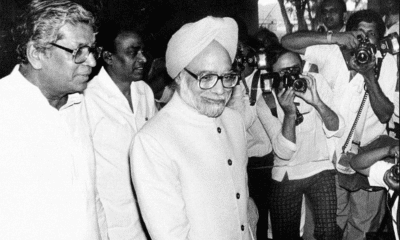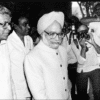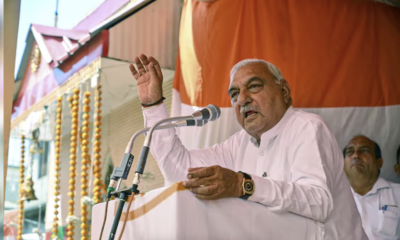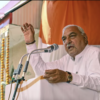Democracy
Deputy Speaker of Lok Sabha and Opposition’s Quest for Balance
Opposition INDIA bloc has been vocal about its demand for the Deputy Speaker’s post, citing parliamentary traditions in which the ruling party occupies the Speaker’s chair and the opposition takes the Deputy Speaker’s role. Congress leader Rahul Gandhi emphasised this point, stating it is a matter of convention and democratic fairness.
The post of Deputy Speaker of the Lok Sabha has once again taken center stage in Indian politics. Following the National Democratic Alliance’s (NDA) successful bid for the Speaker’s position with Om Birla’s election, the focus has now shifted to the long-vacant role of Deputy Speaker. The opposition INDIA bloc is ardently vying for this post, invoking parliamentary traditions and the need for a balanced representation in the legislative process.
The Role and Importance of the Deputy Speaker
The Deputy Speaker of the Lok Sabha holds a significant position within the Indian parliamentary system. This role is not merely ceremonial but comes with substantial responsibilities and powers. Here’s a deep dive into the role and responsibilities of the Deputy Speaker:
Presiding Over House Sessions: In the Speaker’s absence, the Deputy Speaker presides over the Lok Sabha sessions, ensuring the smooth conduct of business. Given the long hours and the intensity of parliamentary sessions, this role is crucial for maintaining order and decorum in the House.
Independent Authority: The Deputy Speaker enjoys the same powers as the Speaker when presiding over the House. This includes the authority to decide on points of order, maintain discipline, and manage the legislative agenda. The Deputy Speaker is not subordinate to the Speaker but holds an independent position accountable only to the House.
Committee Leadership: If the Deputy Speaker is a member of a parliamentary committee, they often serve as the chairman of that committee. This amplifies their influence in legislative matters and oversight functions.
Participation in Debates: Unlike the Speaker, the Deputy Speaker can participate in debates and vote on issues before the House, except when they are presiding. This allows the Deputy Speaker to be more active in legislative discussions.
Order of Precedence: The Deputy Speaker holds a high rank in the order of precedence in India, sharing the 10th place with the Deputy Chairman of the Rajya Sabha and Union Ministers of State.
The Election Process
The election of the Deputy Speaker follows a similar process to that of the Speaker. The Speaker of the Lok Sabha sets the date for the Deputy Speaker’s election, and members are informed through a parliamentary bulletin. The process is governed by Article 93 of the Indian Constitution, which mandates the election of both the Speaker and the Deputy Speaker.
Once elected, the Deputy Speaker holds office until the dissolution of the Lok Sabha and is eligible for re-election. This position, although constitutionally mandated, has seen delays and vacancies, as witnessed since 2019.
The Opposition’s Stand
The opposition INDIA bloc has been vocal about its demand for the Deputy Speaker’s post, citing parliamentary traditions in which the ruling party occupies the Speaker’s chair and the opposition takes the Deputy Speaker’s role. Congress leader Rahul Gandhi emphasized this point, stating it is a matter of convention and democratic fairness.
Congress leaders Sachin Pilot and KL Sharma, along with other opposition figures like AIMIM’s Asaduddin Owaisi, have reiterated the importance of this tradition for a healthy democracy. They argue that having a Deputy Speaker from the opposition ensures balanced representation and facilitates better legislative scrutiny.
The Ruling Party’s Position
The NDA, while open to discussions about the Deputy Speaker’s election, has rejected the opposition’s preconditions. Union Minister Pralhad Joshi stated that while the government is ready to discuss the matter, setting conditions is inappropriate. This stance reflects the ongoing tussle between the ruling party and the opposition over parliamentary positions.
Historical Context
Historically, the Deputy Speaker has not always been from the opposition. For instance, in the 16th Lok Sabha, AIADMK’s M. Thambidurai, an ally of the NDA, served as the Deputy Speaker. However, during the tenures of PMs like Dr. Manmohan Singh, Atal Bihari Vajpayee, and PV Narasimha Rao, the Deputy Speaker was typically an opposition MP.
As the political drama unfolds, the election of the Deputy Speaker remains a critical issue. It is not just about adhering to tradition but about ensuring that the parliamentary process reflects a balance of power and representation. The coming weeks will reveal whether the opposition INDIA bloc’s efforts to secure the Deputy Speaker’s post will bear fruit or if the ruling NDA will continue to hold both key parliamentary positions.








































